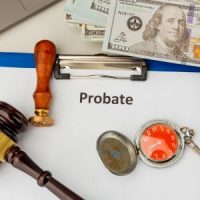What is Inventory and Appraisal in Probate?

When one passes on and has a will, it will go through the legal process of probate, which can be very complex. There are many steps that will need to be taken before the Connecticut probate process concludes. One of these steps is inventory and appraisal. If you were named the executor of an estate, then you would have a large task at hand related to taking inventory of assets that make up a person’s estate.
Being named an executor of an estate likely means that the individual who chose you had a high level of confidence in your capabilities and your ethics. They also probably had great trust in you and felt like you would be the best person to see out their wishes laid forth in their will. However, even if you are quite competent and fair, that does not mean that it will be easy to act in your capacity as the executor and take inventory and appraisal.
This is where an attorney can come in and be extremely helpful. A trained attorney will know the laws and the procedure for working through probate effectively. Your attorney can petition the court for you, help you find and inventory assets, assess the value of those assets, connect with creditors, account for debts, and basically perform all of the duties of the executor effectively. By working with an attorney during probate, you can ensure everything is done right and, as a result, do your part in carrying out your loved one’s final wishes with their estate.
In Connecticut, attorney Brian S. Karpe is an Avon probate lawyer who can help you with inventory and appraisal.
What is Included in Inventory and Appraisal?
Inventory and appraisal are the steps of the probate process where all assets and property are accounted for and valued. Understanding the value of the assets in an estate is important. It can help better ensure that when it comes to distributing the physical property of an estate, it is done as closely as possible to what is outlined in a deceased loved one’s will.
Identifying, categorizing, and appraising assets in an estate can be a complicated and tedious job. This is because the entirety of a person’s possessions should be accounted for in the estate’s inventory. Some common property that would be assessed would be any of the following:
- Personal items like clothing or jewelry
- Household items
- Vehicles
- Investment accounts
- Insurance policies
- Real estate
- Financial accounts
- Unpaid wages or stock options
- Business holdings or assets
- Personal loans or money from court judgments
Speak to a Connecticut Probate Lawyer Today
The inventory and appraisal process can be quite a workload. It is critically important that executing the potentially monumental and time-consuming task is done correctly and accurately. This is why consulting with an attorney for support, guidance, and assistance can be advantageous.
For more help on estate planning in Connecticut and with the probate process, please reach out to and call the Connecticut estate planning attorney at the Law Office of Brian S. Karpe to schedule a free consultation at 860-217-1458.
Source:
portal.ct.gov/SOTS/Register-Manual/Section-V/Probate-Courts
